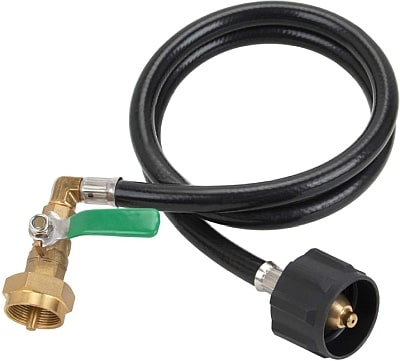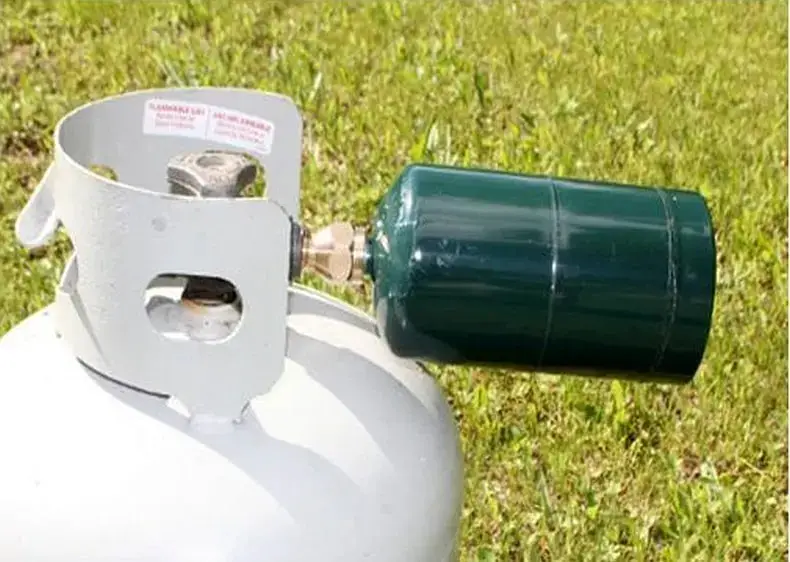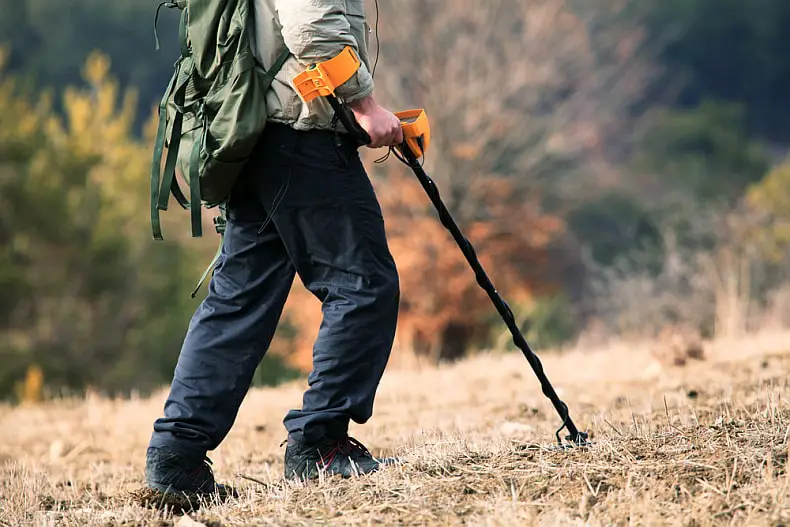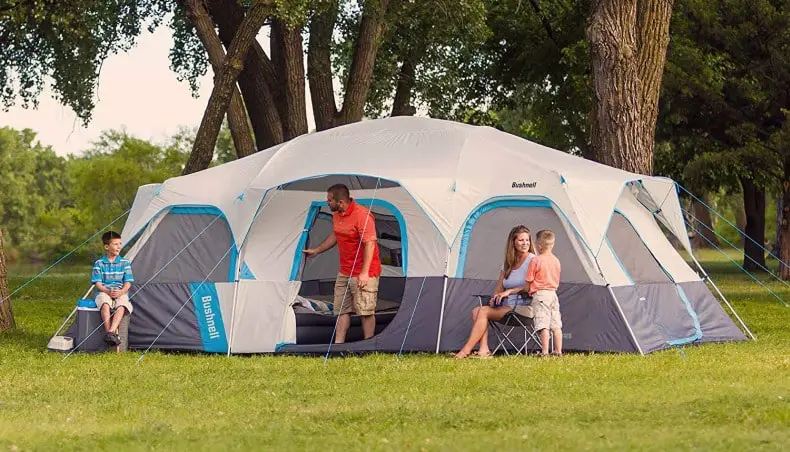Propane tanks have been incredibly useful in numerous areas. They are easy to use, pretty safe when used correctly, and you can easily find them all over the place. They are especially useful for BBQ grills. Small 1 lb propane cylinders have many applications when we camp. When we use all the propane in one of these, it seems shameful to have to throw these canisters away only to buy an entirely new one
Many are unaware of the legality surrounding propane tanks, especially regarding refills. Is it legal to refill 1lb propane tanks?
It is in fact and has always been perfectly legal to do for personal use. Although, it’s not really easy to safely refill 1lb tanks, you’ll need a refill adapter hose.

There are different rules about legality when it comes to transport, which is completely different.
This goes beyond 1lb propane tanks, as ALL propane tanks are legal to refill. The only exception to this rule is the incredibly large version that most regular people will not have. Those tend to require a professional and mostly tend to be found at companies.
There are some legal rules to consider that you should all remember as well.
Table of Contents
Legality Issues:
As we referenced above, it is completely legal to refill your propane tank for personal use. There is a potential legal issue you can face if you choose to transport them. The reason for this legal difference often has to do with selling. Propane is considered a dangerous chemical.
Not only does it have the potential to make fires far larger, but it can also be harmful to breathe isolated. Propane also lasts for quite some time, so if any leak out…you’re going to have it around for a while.
While propane tends to burn relatively clean, that does not make it very environmentally friendly sadly. Propane is STILL made from natural gas processing and petroleum refining. As a result, isolated, it can be a health hazard to breathe in. You won’t always know you’re breathing in those fumes either!
Moreover, transportation of propane could result in accidents becoming far worse. Imagine how much larger an explosion might be. Naturally, due to all the problems transportation comes with…the law is in play to stop things before they become a problem.
Plus, transportation of normal propane is fine as it’s been properly sealed. In the refill, no one can be sure how it’s sealed.
Fines/Prison Time:
If you are found guilty of transporting refilled propane, there is a risk of up to 5 years in prison and up to $500,000 in fines. A lot of this has to do with propane bottles but the same law exists for tanks too.
One might wonder, well if I refill my tank somewhere and transport it to my home…am I breaking the law? The answer is no here because you can easily prove that you are only transporting it to take it back home. It then falls under “personal use,” which is legal, of course.
Yet there is a limit on this, naturally. If you claim you’re carrying around 5 bottles or tanks for “personal use,” then you might have trouble proving the need for this. Those who take big trips in RVs might have a need for such a thing. In those cases, they’d at least have a way to prove personal use.
Whereas a dude in a pick-up truck might not be able to do so if he is taking refilled tanks/bottles a far distance. Mostly because he could always refill them at a closer location anyway.
These tend to most often have to deal with the disposable version over the refillable version too, which brings up our next point.
Make Sure Your Propane Tank Is Refillable First
A lot of people tend to use propane tanks that are refillable. However, there are some who use a true one-use version. These will be labeled as disposable, and they tend to mostly be the bottle versions. Meanwhile, most “tanks” tend to be refillable.
If you do not have a tank that is capable of refill, the best thing you can do is recycle it. Any scrap metal yard will take them, as long as they are empty obviously. If you have a version that is not metal but might be a version of glass, they might take it.
Although most tend to be metal these days, you never know. Plus, scrapyards often offer money for recycled metal. It might not be much, but it’s better than nothing, right?
These same tanks can also be taken to your local Department of Public Works to dispose of them as well. It is not recommended to simply dispose of them at your local landfill or to just leave them outside in your yard.
Safety Precautions To Remember When Refilling Propane Tanks
There are a lot of other things to discuss when it comes to the smaller propane tanks, mostly in regards to safety. For reasons likely obvious to most of us, some people are not great at safely doing things and can make some bad mistakes.
These safety measures will be universal and should be utilized when refilling any propane tank, so even if you have a larger tank beyond 1lb…this will work for you too. Always remember first to avoid taking propane tanks indoors. All refill stations will be outdoors or away from the main portion of a business.
Other safety tips while refilling then using include:
- First Step: Wear Gloves
- Second Step: Wear Safety Glasses/Goggles
- Third Step: Avoid being around fire, cigars/cigarettes, or any open flame
- Fourth Step: Make sure your previous tank is completely purged from old propane
- Fifth Step: Remember your “Overfill Prevention Device”
- Sixth Step: After refilling, make sure to transport propane in an upright position
- Seventh Step: Before using, check for any holes or leaks
- Eighth Step: Use, never leaving it alone for long if ever while in use.
Universal Safety Tip:
You need to remember not to leave propane tanks in a vehicle as well. Propane is filled and transported cold, so you need to avoid letting it stay out in a place where it can heat up. Once it does heat, propane expands and could very well lead to leaks or even a potential explosion.
No, do not leave your refilled or new tank in the car for a little while. Get it out now! It might seem like a bit of an inconvenience at the time, but you’ll be thankful you removed it in the end.
This goes for any size tank, even those at the 1lb level. While small, they can pack a punch. On top of this, the smaller they are, the more likely they’ll be to leak or burst open. Naturally, we’d want to prevent either one from happening if possible.






